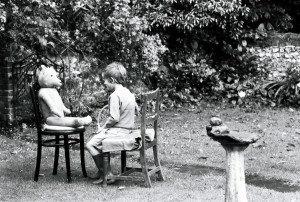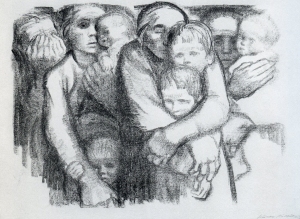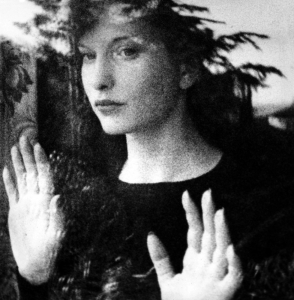 I hesitated posting this, since a deep sadness resurfaced and took hold of me while pondering Soul and Spirit. What’s the point, why exist, to what end? I asked this as a child, having been shown horrendous images in the wake of the Second World War, meant as shock treatment in my German primary school during the 1950’s. A poem I wrote about this experience I still don’t feel confident to share. I turned iconoclast, explored philosophies, religions, myths, literature, searched for exceptional minds, and resisted prescribed beliefs in favour of direct experience.
I hesitated posting this, since a deep sadness resurfaced and took hold of me while pondering Soul and Spirit. What’s the point, why exist, to what end? I asked this as a child, having been shown horrendous images in the wake of the Second World War, meant as shock treatment in my German primary school during the 1950’s. A poem I wrote about this experience I still don’t feel confident to share. I turned iconoclast, explored philosophies, religions, myths, literature, searched for exceptional minds, and resisted prescribed beliefs in favour of direct experience.
In my twenties I turned to images and their symbolic power, until a numinous event in Israel reunited me with language, literature, poetry, and science. I studied too many subjects to bore you with, at my own expense, none for economic advantage. I did meet exceptional people, including mystics, yet my question, like a spell, kept birthing more questions.
Disheartened, yet fascinated by our manic mechanistic Zeitgeist, I adopted a transpersonal view, letting things unfold until decisions fell into place. With each intuitive choice, energy for action met me half way and helped me succeed with many projects. This included workshops on dreams and myth, and the wonderful Parent Link programme I helped get on the road, all about reflective listening and the language we use.  Unfortunately this parent and school-supported project received no support from the Government. Still, at times I felt I was making beneficial contributions to society. Of late, no new question has arrived to kick off a renaissance in my poetic imagination, or shed light on the collective mood of futility, which seems to confirm the scientific view that reality is determined by numbers.
Unfortunately this parent and school-supported project received no support from the Government. Still, at times I felt I was making beneficial contributions to society. Of late, no new question has arrived to kick off a renaissance in my poetic imagination, or shed light on the collective mood of futility, which seems to confirm the scientific view that reality is determined by numbers.
Battered, but not beaten, I honour my core resolves: that everything physical is en-souled and resonates with everything else in the universe. And that consciousness, with the potential for symbolic awareness in humans, creates innumerable realities we co-create in ever new forms.

Arthur Rackman – Twilight
Soul and Spirit have become terms relegated to poetry. Some traditions hold them to be interchangeable and interdependent, akin to the Eastern concept of Yin and Yang. In this sense the feminine and masculine principles (mentioned below) reside in women and men alike, that is, their receptive and active and qualities work in each of us. Certain myths simplified and distorted this truth, which now asserts itself with fresh understandings regarding the psychological identification with gender.
“When I say the feminine, I don’t mean gender. I mean the feminine principle that is living—or suppressed—in both men and women.” Marion Woodman
Observing the political debates around the globe, I notice a similar narrow power dictum in entrenched wars for control, which conjure up the quarrel of parents that drive children to hide in the broom cupboard.
I understand SOUL (Psyche) as pure consciousness, self-sufficient. Yet once identified with impressions of the physical world – soul becomes the vessel. We talk of soul shining through eyes, through nature, or as immanent presence pervading matter. Consider body, mother, growth, loss, suffering, receptivity, attachment, memory, meaning, imagination, mystery, intuition, aesthetics, melancholy, yearning, endurance, constrictions, chaos, bliss … One may associate Soul with Eros, energy, the cosmos, planets, moon, beauty, stars, history, identity, myths, time, space, past, darkness, the unconscious, unpredictability, and the female principle (Anima) inviting spirit for input and direction.
SPIRIT, to me, is like a wind of light carrying seeds of information to recipient vessels, conscious or unconscious, singular or universal. Humans interpret this information, wisely or not. We talk of actions as spirited, fiery, determined, energetic, contradictory, passionate, always moving and changing. We talk of people driven by principles, for good or bad, or, frankly, being possessed. Spirit aligns with order and ideals, again, for good or bad. Add the relentless drive for perfection which aims, in some traditions, for transcendence, seeking the divine not in the messy psyche, but only in abstract spheres beyond matter. We associate Spirit with logos, will, action, speed, the sun, innovation, reason, light, the male principle (Animus,) and future visions … welcomed by the soul.

Mothers – Käthe Kollwitz
Torn between spiritual heights and visions, and the dark depth of the collective psyche, my initial therapy training with Roberto Assagioli’s Psychosynthesis impressed me with an undeniable necessity: The higher we rise the deeper we’re called to descend into the murky shadow of ourselves and our collective inheritance. Gripped then, once again, by the deep sadness I felt as a child in the face of human suffering, I cried for days. The work began, with my own unconscious, with individuals and groups. But nearly 35 years on, I feel yet again despair that the knowledge gained about the psyche is not wider applied. The abuse of people, especially women and children, and the planet itself, continues in the name of the power principle and progress, as does the resistance to acknowledge and heal personal and collective grief. It’s so much more convenient to blame an enemy.
I had the privilege to meet a remarkable Sufi teacher, Fazal Inayat-Khan, and the community of his students during the mid 1970’s. As the grandson of the saintly Hazrat Inayat Khan, Fazal developed his grandfather’s message in passionate, spontaneous and radical modern ways. One of his sayings: ‘Answers are dead, questions are alive,’ gave perspective to my existential query. For him, fragile egos behind the mask of their persona needed strengthening before the Self could become conscious. He orchestrated intense workshops during which the shadow aspects of our personalities were exposed. Each event was followed by a tender and humorous process of debriefing. He taught me to forgive myself, to be kind to myself. He died much too young in 1990. The copyright to hundreds of Fazal’s pioneering talks is held by the present Sufi Way, so his deep mystical insights must wait for another day. While I was co-editing ‘Heart of a Sufi,’ reminiscences gathered from his students, we were limited to a few quotes and one inspired poem, Qalandar, which I hope to share some time.
Explanations aim to reassure, but knowing the limits of reason, I search for metaphors, symbols, poetry in words and images to make my fleeting insights graspable, as lonely as they stand, and as totally irrelevant as they may be to others. Still, it’s a lovely surprise when readers explore the archives here, or read my quest novel, ‘Course of Mirrors,’ which defies genres.
Turbulent times call for intuitive introspection, though sifting through the avalanche of information available is probably the great task we must master in this present decade. When lame slogans and bitter opinions are shouted with animosity across the media, our conscience is severely tested.
What we call good and bad coexists in the psyche. If you’ve read Ursula Le Guin’s Wizard of Earthsea Saga, you may recall the poignant moment when the protagonist realises that he and his shadow opponent share a secret name. For that instant their identities merge as one.
Among great thinkers of recent decades who influenced my thoughts, I often return to Stanislav Grof, Gregory Bateson, C. G. Jung, and the people who honoured and expanded Jung’s brilliant insights, among them Esther Harding, Marie-Louise v. Franz, Marion Woodman, James Hillman, Anthony Stevens and many others who further explored the Psyche in relation to the inner work of individuation, that is – learning to hold the tension of opposites towards realising the balance of a universal underlying wholeness. Archetypal forces inspire, overpower, or dull us to sleepwalk into tragedies. We, with our humble egos can take on our small responsibility; each individual serves as a bridge, and an interface.
‘Matrignosis’ is a rich site by Jean Raffa, who explores Jung’s ideas with helpful guidance.
Related: Cartography of the Psyche, with a link to Stanislav Grof’s talk on the psychology of the future.
And my cheeky post about the ego – give the poor ego a break.
To conclude, a rare excerpt of thoughts on metaphysics from Hazrat Inayat Khan, shared with his students between 1915- 1920:

Maya Deren – Meshes of the Afternoon
The Experience of the Soul through the Spirit …
The soul has two different sides and two different experiences. One side is the experience with the mind and the body, the other side is the experience of the spirit. The former is called the outer experience, the latter the inner experience. The nature of the soul is like glass, transparent, and when one side of the glass is covered it becomes a mirror. So the soul becomes a mirror in which the outer experiences are reflected when the other side is covered. That is why, however greatly blessed a person may be with the outer knowledge, he is not necessarily gifted with the inner knowledge. Therefore, in order to attain to the inner knowledge the Sufi covers the other side of the soul, that its mirror part may face the spirit instead of the outer world. As soon as is able to accomplish this he receives inspirations and revelations.
There are people who are by nature intuitive, or who are called psychic or clairvoyant by nature. It is accounted for by the other side of their soul naturally facing the spirit within. One may call them extraordinary, or exceptional, but not mystical, for the mystic does not desire that position. He, by concentration and meditation, gains such mastery that he can cover the soul from without to take the reflection within, and that he can cover the soul from within when he requires the reflection from the outer world to its full extent. Balance is desirable, and mastery is the goal to be attained.
